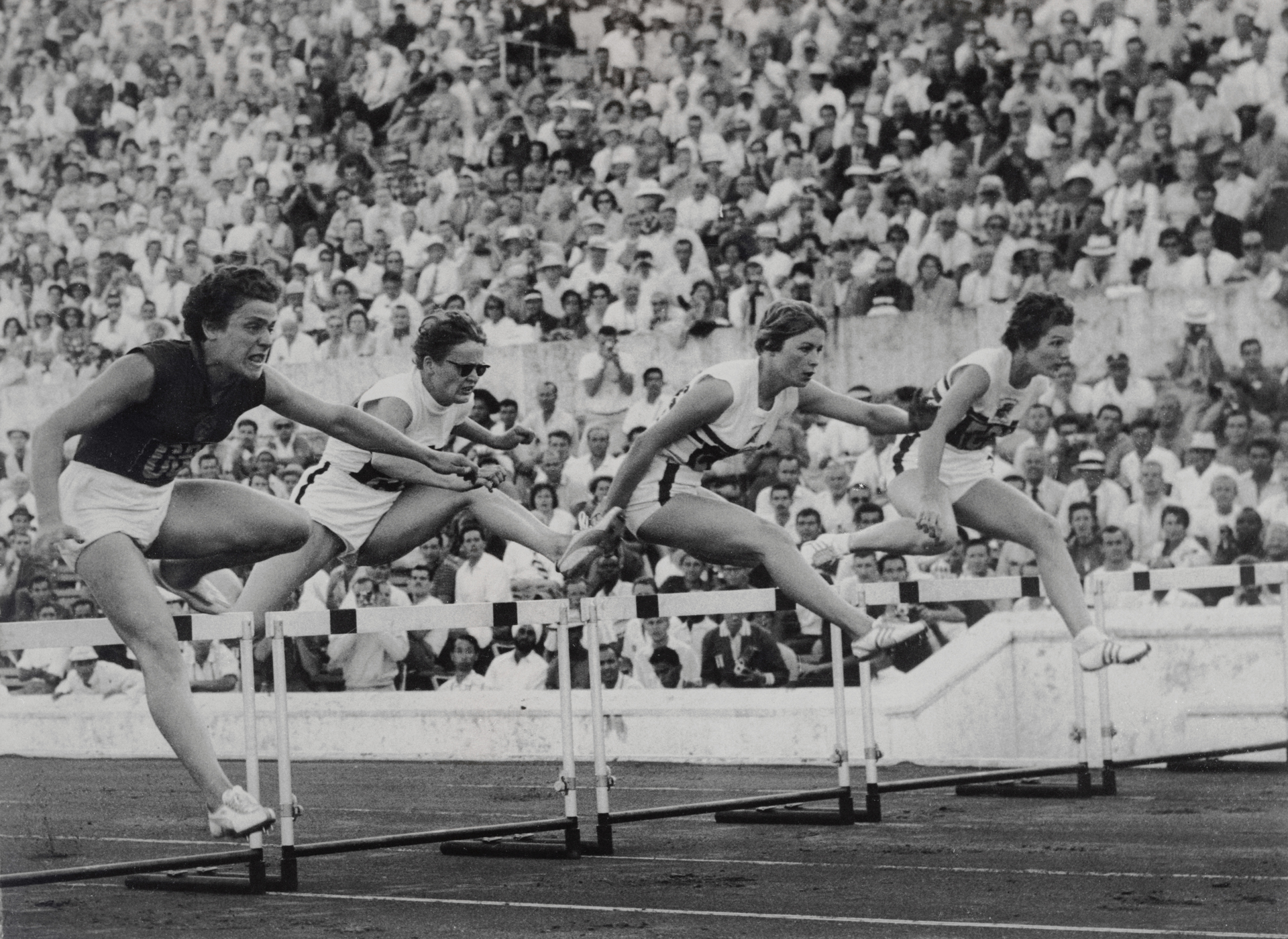September 2, 1960 was marked by an unusual event in the history of sports.
On this day, Soviet athlete Tamara Press won the gold medal of the 17th Summer Olympics in Rome in shot put.
The day before, her younger sister Irina Press won the final in the 80m hurdles race.
Thus, Soviet athletes became the first sisters - champions of the Games.
Tamara Press was born on May 10, 1937 in Kharkov, and almost two years later, on March 10, 1939, Irina was born.
Already in childhood, many tests fell to the lot of future athletes.
The Great Patriotic War claimed the life of their father, Nathan Press.
He died in 1942 near Leningrad.
Together with their mother, the girls were evacuated from their native Kharkov to Samarkand.
It was in Uzbekistan that the Press sisters began their journey to the top of the sports Olympus.
The eldest Tamara was the first to enter the athletics section.
Her outstanding physical characteristics were noticed by the famous coach Vladimir Bessekernykh.
It was he who persuaded the girl to focus on the discus throw and shot put.
Then her younger sister Irina followed her example.
The specialist played a colossal role in the lives of the girls, replacing their deceased father with them.
He was engaged not only in their sports development, but also made sure that they did well in school.
Despite this, Bessekretnykh understood that for truly meaningful success, they needed more suitable conditions.
It was on his recommendation that the sisters in 1957 went to Leningrad to the legendary coach Viktor Alekseev.
The first successes were not long in coming.
Irina became a master of sports in hurdling and pentathlon and won one All-Union competition after another.
Tamara improved her skills in throwing the shot and after a while became Alekseev's leading ward.
For her qualities, she received the nickname TTT - talent, work and patience.
In 1958, Tamara Press became the champion of the USSR, and also won the first European championship in discus throwing.
The sisters were well aware of the importance of psychology in such sports.
It was during these years that the eldest of them began to use her main weapon outside the athletics sector - emotional pressure.
Before the start of the competition, she got to know her rivals and through conversation unbalanced them.
In 1960, the country's leading athletes went to the Olympics in Rome.
It is worth noting that Irina had to compete only in hurdling, since at that time her crown discipline, pentathlon, was not in the competition program.
Despite this, she confidently qualified for the final, simultaneously rewriting the Olympic record.
In the decisive race, Irina did not manage to start perfectly, which is why the final time was worse than in the semifinals.
Nevertheless, she covered the distance faster than anyone else and became a champion.
Irina Press (far left) at the Olympic Games in Rome, 1960
Gettyimages.ru
© Bettmann / Contributor
In parallel, there were shot put competitions.
In qualifying, Tamara took third place, losing to American Erlene Brown and New Zealander Valerie Sloper.
In the final, a stubborn struggle was expected, however, the Soviet athlete in the second attempt sent a projectile to 17.32 m and actually did not leave her rivals a chance.
At the same time, the girl risked being seriously injured when a cannonball fired by Brown accidentally hit her in the thigh.
In the discus throw, Press took second place, losing only to her compatriot - the first Olympic champion from the USSR, Nina Ponomareva.
Tamara Press at the Olympics in Rome, 1960
© Wikimedia commons
Thus, Irina and Tamara Press became the first sisters who ascended the top step of the podium at the same Games.
Four years later, the sisters went to the Tokyo Olympics in the rank of favorites and confirmed their status.
Irina became the winner in the pentathlon, gaining a total of 5246 points and setting world and Olympic records.
Interestingly, she was so good at shot put that her opponents confused her with Tamara, a “specialist” in this discipline.
The older sister herself this time did not leave anyone a chance either in discus throwing or shot put, and became a three-time Olympic champion.
Two years after the Japanese Olympics, 29-year-old Tamara and 27-year-old Irina, unexpectedly for many, announced their retirement.
The Western media associated such an early departure from the sport of the sisters of the Press with the appearance of mandatory gender testing in sports.
And although this assumption was never refuted, most likely the reason was more commonplace and lay in numerous injuries.
In addition, ambition also affected: the athletes did not want their results to decline, so they decided to leave at the very peak.
Both athletes continued to work for the benefit of national sports.
Irina for many years headed one of the departments of the State Committee for Physical Culture, Sports and Tourism, then moved to the Committee for Physical Culture and Sports of the Moscow Government, where she worked until the end of her life.
She passed away on February 22, 2004.
Tamara received a PhD in Pedagogy, worked as a trainer, was engaged in scientific activities, was a member of the Presidium of the All-Russian Federation of Athletics (ARAF), and also founded her own charitable foundation.

